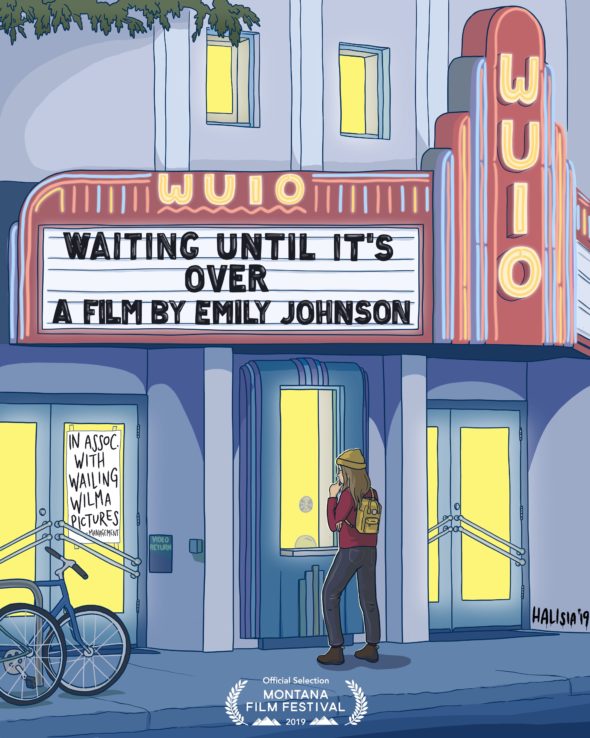While Submittable’s team is composed of brilliant product designers, account managers, customer support specialists, and other skilled crew members, we’re also chock full of creative talent. From orchestral-singing sales reps, to stand-up comedian marketing specialists, poetic customer service representatives, and more, we don’t just collect creative content, we make it too.
We sat down with Sales Development Representative, Emily Johnson, Video Marketing Specialist, Jordan Marvin, and our COO, Bruce Tribbensee to talk about their experiences as both filmmakers and Submittable employees.
What was the premise of the first film you ever made?
Bruce: 100 Pieces of Glass. It’s a short film of about 30 scenes showing glass being broken.
We bowled a bowling ball into glass bottle bowling pins, dropped, ran over, smashed, and cracked a variety of glass windows, odd glass objects, in a display of fragility and light.
Jordan: I’m a Patriot is about two estranged brothers who take an inheritance from their late father and go on a road trip across the west. It’s a pretty standard coming of age story.
Emily: It was a coming-of-age story titled, Me Is Being Great. It was loosely based off the time after college when I was trying to navigate what I wanted my future to look like. I co-wrote the script with a good friend and played the lead role. Just a classic early-twenties growing-pains story.
What is one actionable piece of advice you can offer aspiring filmmakers?
Bruce: Story, story, story. Not gear.
Jordan: I think a key piece of advice for filmmakers is to embrace budgetary constraints. If you’re a small indie and you don’t have enough money to pay for locations, for example, you probably also have a small crew and can probably get away with stealing a quick shot somewhere. If you don’t have a budget like the big boys, you can still get creative. No one is watching you. Embrace it and have fun with it.

Emily: Don’t be afraid to make anything. Even if it’s only for your own enjoyment. Making art doesn’t mean you have to share it. Filmmaking can be for your own enjoyment. Don’t be afraid if you don’t have ideas either. When you’re not making films I recommend consuming them as much as possible.
What has been the most difficult part of being a filmmaker?
Bruce: Finding enough time to edit.
Jordan: Convincing your parents that it’s going to work out. Seriously, though, knowing when to leave a project and move on to the next. I linger too long sometimes, and it’s just rearranging deck chairs. At some point you have to accept the finished product as it is.
Emily: Finding the right collaborators that share my vision or way of communicating as well as money. There’s always a need for that.
What is your personal experience with submitting to film contests or calls?
Bruce: I haven’t submitted to calls on Submittable but have submitted to the Documentary Challenge in the past. 5 days to write, plan, shoot and edit a 5 minute documentary. The constraints made it a unique filmmaking experience and had a great team-building side effect. We had to work together and rely on each member of the team to produce the best doc we could.
Jordan: Making the movie itself is a small part of selling it to people. A piece of advice for filmmakers: focus on coming up with a promotion plan—and have those materials ready to go.
Emily: My background is in creative writing, so in the beginning of using Submittable I usually searched for small literary journals with open calls. It was the first time I had used a platform like it and it was the easiest experience for a timid and beginner submitter.
What advice do you have for filmmakers submitting to film contests on Submittable?
Bruce: My response is a question: Is making a film you like more important than winning the contest?
Jordan: Do research on the films that were accepted or won in previous years can give you a better idea of what your chances are for succeeding. Like if a festival has films starring Leonardo DiCaprio, that might not be the best fit for your indie film.
Emily: I prefer small festivals that feel intimate and cozy. You will hear the best feedback from those festivals. Film festival in Mississippi? Yes please! Also, don’t be afraid of rejection or putting yourself out there. Submitting your film takes practice and you won’t always get accepted on the first go! Cast a wide net and see what bites.
Has working at Submittable reshaped how you approach filmmaking and submitting to opportunities? If so, how?
Jordan: It’s taught me patience—I used to feel frustrated with long wait times between submitting and hearing back from reviewers. Now that I’m behind the scenes, so to say, I see why. There’s so much work that goes on after you submit, that now I’m more patient in regards to waiting to hear back.
Emily: Yes, because I feel more open to opportunities I would have otherwise never heard of. By looking at festivals and competitions outside of my realm I feel inspired to tell stories I’ve never told before.
Looking for film opportunities to submit to right now? National Geographic is currently running its Wild to Inspire Short Film Contest, with prizes that include a Nat Geo expedition and the chance to see your film screened at Sun Valley Film Festival. Enter by February 3 for the chance to win.
This announcement was sponsored by Submittable partner, National Geographic.
Interested in receiving creative calls and opportunities? Sign up for our genre-specific creative calls and our Submishmash Weekly Newsletter.
